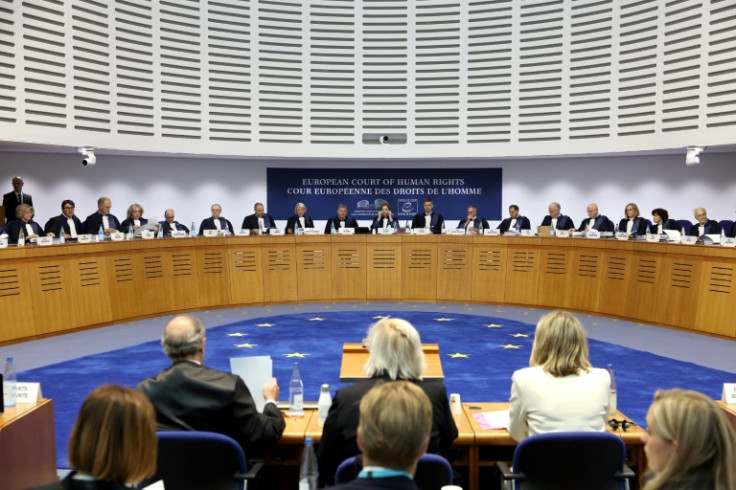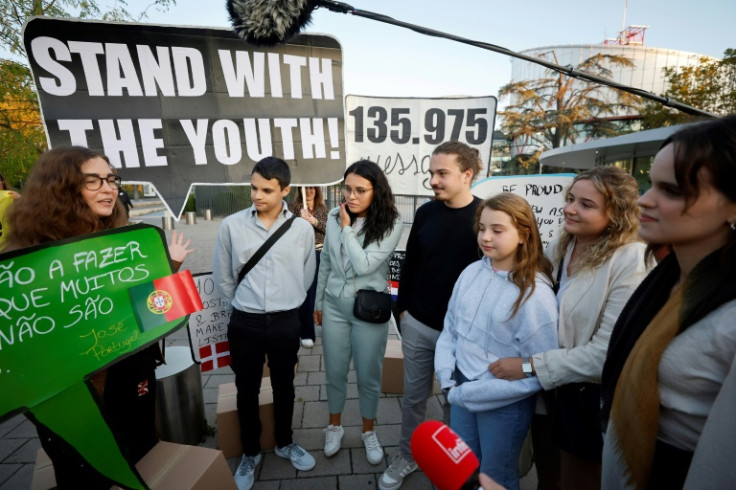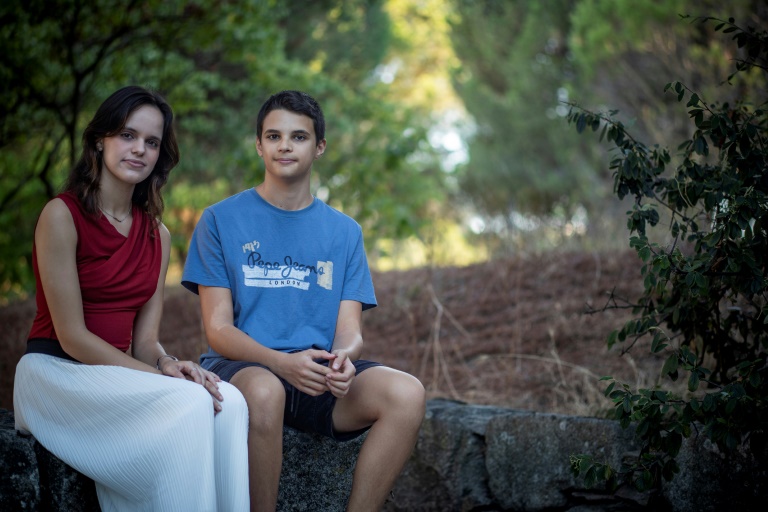The European Court of Human Rights (ECHR) on Wednesday began hearing a case brought by six Portuguese youths against 32 nations for not doing enough to stop global warming, the latest bid to secure climate justice through the courts.
“The case concerns… the impact of climate change,” said Siofra O’Leary, president of the Strasbourg-based court’s 17-judge Grand Chamber, “resulting among other things in heatwaves and wildfires affecting the applicants’ lives and health”.
The youths, aged 11 to 24, say they are suffering from anxiety over their health and natural disasters.
Their move to file a complaint with the Strasbourg-based court was sparked by the devastating wildfires that struck Portugal in 2017, killing more than 100 people and charring swathes of the country.
Some plaintiffs claim allergies and breathing problems both during the fires and after, conditions at risk of persisting if the planet keeps warming.
“Due to heat extremes I am limited in how I exercise and how much time I can spend outdoors. I am forced to stay inside, I struggle to sleep and thanks to the weak climate policies of these governments, things are getting worse,” said Andre Oliveira, 15, one of the six involved.
Their case targets the 27 European Union member states along with Russia, Turkey, Switzerland, Norway and Britain.
In concrete legal terms, they complain of infringements of their rights to life and respect for private life — articles 2 and 8 of the European Convention on Human Rights.
More than 80 representatives and other lawyers for the states were present in the packed courtroom, though Russia was not represented and the plaintiffs have withdrawn their complaints against Ukraine.
The ECHR has labelled the case a “matter of priority” and passed it to the body’s top judges.
Two other climate cases involving France and Switzerland were examined in March, though no rulings have yet been issued.
The Grand Chamber must first rule on the admissibility of the Portuguese case, since the youths filed directly to the ECHR without first seeking recourse in domestic courts.
They argue that trying to file separate cases in all 32 countries would be an “excessive and disproportionate burden” on an issue requiring urgent attention.
But while acknowledging the importance of climate change in the abstract, lawyers for the states said the youths’ fight did not belong before the European court.
British representative Sudhanshu Swaroop said that the plaintiffs “have not identified any particular connection” to the states outside Portugal targeted in their case.
“They rely on general features of climate change which could be invoked by anyone who claims to be impacted,” he added.
Meanwhile the youths “have not proved they have suffered harm”, Portuguese representative Ricardo Matos said.
“Their arguments are about the impacts of climate change, but they have not proved that they personally are victims. Simple conjectures are not enough”.
Lead judge O’Leary gave both sides two more weeks to send written responses to the judges’ questions, while a decision on whether the case can be heard is likely to take several months.
Governments “are trying to minimise the impacts that climate change has on our human rights,” said Claudia Agostinho, 24, another of the plaintiffs.
“They tried to say they understand that climate change is a problem, but it became clear today that they are denying the reality that what we are experiencing is getting worse every year,” she added.
For their part, the plaintiffs’ lawyers say such arguments are typical of government responses in climate cases.
“They are seeking to evade scrutiny of their climate policies by focusing solely on the admissibility criteria,” said Gearoid o Cuinn, director at the Global Legal Action Network (GLAN).
“None of them have refuted the evidence that we’ve put forward that their policies are leading to three degrees of warming or more,” he added.
Until now, the court’s environmental decisions have not covered global warming, dealing with issues like natural disasters and industrial pollution.
Activists are increasingly turning to courts to force greater efforts by governments to tackle climate change amid warnings the world is falling short of the 2015 Paris Agreement goals for limiting warming to 1.5 degrees Celsius above mid-19th century levels.
In August, a court in the US state of Montana ruled in favour of a group of youths who accused it of violating their rights to a clean environment.
“The big advancement in the past couple of years was clarifying that this connection between human rights and climate change is very obvious,” said Maria Antonia Tigre, co-author of a report on climate litigation published by the University of Columbia’s Sabin Center for Climate Change Law.
“We can use human rights law… to force further action from states and from corporations,” she said.
British representative Swaroop warned against judicial overreach in his remarks.
A decision in favour of the applicants “would impose wide-ranging obligations with profound impacts across the economies and societies of the respondent states,” he argued, underlining “the need to follow democratic process”.
AFP

AFP

AFP






